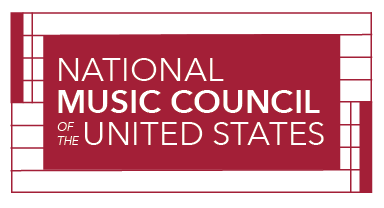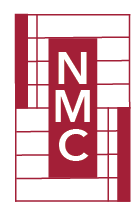July 8, 2024, NEW YORK CITY–The National Music Council of the United States (NMC) has issued an educational, legislative-based statement outlining the general consensus views of the American music creators, copyright owners and educators that constitute its broad membership, concerning both the opportunities and the existential dangers posed by the rapid introduction of generative artificial intelligence (GenAI) systems throughout the U.S. and global music communities.
With billions of dollars and the future of American musical culture at stake, NMC states that it is seeking to provide the basis through the attached statement for a more informed and far-reaching dialogue among creators, copyright owners, business leaders, technologists, legislators, students, educators and members of the public regarding the need for measured legislative action and governmental oversight to ensure fairness and equity in the GenAI marketplace.
According to NMC Chair Charles J. Sanders, “GenAI has the capacity – using pre-existing copyrighted works to produce new derivatives – to enhance human musical expression and public enjoyment of the musical arts through fairness in voluntary licensing, or to cause long standing, crushing and potentially irreparable damage to musical creativity, commerce and culture. Our goal is to support the best possible legislative outcomes for our organizational members and their constituencies, leading to ever-increasing advancement of human-centric musical excellence, progress, equity and cultural preservation around the world.” NMC President Dr. James Weaver adds “the issues covered in the document include the general principles of consent, credit, fair compensation, disclosure, record keeping, and a necessarily narrow application of any exceptions to infringement, limited to only certain, non-commercial exemptions in the area of education.”
Dr. David Sanders, NMC’s Executive Director, expressed his hope that the statement will help facilitate rapid, legislative progress toward protecting the rights of creators, copyright administrators and educators through cooperative discussion. “Our paper is intended as an educational primer designed to demonstrate both support of our membership for AI technology in general, but insistence in the context of GenAI on respect for the legal rights of the creative community – and for the principles of diversity, equity and inclusiveness which our community considers very high priorities.”
NMC is the Congressionally-chartered, educational umbrella organization for the broad spectrum of US music community advocacy groups. Founded in 1940, NMC’s membership is today comprised of almost fifty leading American trade organizations representing four distinct categories of music community interests: those of music creators; musical artists & performers; music copyright owners & administrators; and, music educators. In all cases and on every issue, each member organization explicitly retains the authority to speak independently on its own behalf, regardless of whether the views it expresses differ from those of NMC and/or other NMC members. Click here to read the GEN AI statement. For more information on NMC, please visit musiccouncil.org.
The US Patent and Trademark Office announcement, will be holding a public listening session on AI and IP, including copyright, at Loyola Law School in LA, on March 27 (both in person and remotely). The session will include representation from the Copyright Office and feature panel discussions by experts in the field of patent, trademark, and copyright law that focus on:
- a comparison of copyright and patent law approaches to the type and level of human contribution needed to satisfy authorship and inventorship requirements;
- ongoing copyright litigation involving generative AI; and
- a discussion of laws and policy considerations surrounding name, image, and likeness (NIL) issues, including the intersection of NIL and generative AI.
For more information about PTO’s work with stakeholders on AI, see its AI and Emerging Technology Events page.
The National Music Council weighed in on the International Property Organization (WIPO) Intergovernmental Committee (“IGC”) discussions on traditional cultural expressions. Read the full comments here.
The Reimagining Inclusive Arts Education Act, introduced by David Scott (GA-13) seeks to increase access to arts education and arts therapies for students with disabilities. Recognizing the benefits of arts education for children with disabilities, this legislation would provide grants to further train educators and arts therapists working with those students. Specifically, this legislation would;
- Direct the Secretary of Education to establish the Inclusive Arts Education Grant Program
- Eligible Entities for Funding: Local Education Agencies (LEAs), State Education Agencies (SEAs), or a partnership between an LEA/SEA and an Institution of Higher Education or Non-Profit Organizations
- Priority: Schools receiving Title I funds are given priority in the grant application process.
- Eligible uses of grant funding:
- Promoting curricula, best practices, professional development for arts educators and creative arts therapists in elementary and secondary schools that would;
- Eligible Entities for Funding: Local Education Agencies (LEAs), State Education Agencies (SEAs), or a partnership between an LEA/SEA and an Institution of Higher Education or Non-Profit Organizations
-
-
-
- Increase access and improve inclusion of children with disabilities in arts education programs.
-
-
-
-
-
- Adapt classroom materials and lessons to accommodate children with disabilities.
-
-
- Provide a definition of “Creative Arts Therapy” that specifically enumerates music as an available medium and highlights the social and emotional benefits of the arts.
On January 10, 2024, Reps. María Elvira Salazar (R-FL) and Madeleine Dean (D-PA) introduced the No Artificial Intelligence Fake Replicas And Unauthorized Duplications (No AI FRAUD) Act. The bill establishes a federal framework to protect Americans’ individual right to their likeness and voice against AI-generated fakes and forgeries.
The No AI FRAUD Act establishes a federal solution with baseline protections for all Americans by:
- Reaffirming that everyone’s likeness and voice is protected, giving individuals the right to control the use of their identifying characteristics;
- Empowering individuals to enforce this right against those who facilitate, create, and spread AI frauds without their permission; and
- Balancing the rights against First Amendment protections to safeguard speech and innovation.
Nearly 300 artists, songwriters, actors and other creators have voiced their support of the No AI FRAUD Act.
To send an email to your officials voicing your support, visit the Human Artistry Campaign’s “Contact Congress Portal.”
The National Music Council of the United States, along with its music community colleagues, is extremely gratified that its efforts to curb the illegitimate expansion of the fair use doctrine in various foreign nations during the global pandemic have met with success! The United States Trade Representative and the Biden Administration has heard our voices, and responded by ensuring that while massive global efforts to fight COVID-19 must and will continue unabated and at full speed, those actions cannot be permitted to lead to the gutting of global copyright protections for no valid reason.
Final wording of the joint agreement, which further delineates Covid-19 exemptions to the TRIPS (Trade-Related Aspects of Intellectual Property Rights) Agreement of the World Trade Organization (WTO), are still being worked out. The Trips Agreement establishes minimum standards of protection that each government has to give to the IP of fellow WTO members. The new agreement will continue to narrowly define Covid-based, fair-use exemptions for unauthorized copyright uses, consistent with the strict, general limits currently in place.
The coronavirus has already had a devastating economic impact on America’s nonprofit arts sector. Financial losses to date are estimated to be $3.2 billion. Since January 20th, cancellations and closings have been reported in thousands of communities spanning all 50 states. In order to support the sector at this vital time, REQUEST THAT YOUR MEMBERS OF CONGRESS include $4 billion—to be distributed though the National Endowment for the Arts (NEA) — to help offset the losses of the nonprofit arts industry, and expand eligibility through additional federal programs to ensure artists, entrepreneurs, and small businesses in the creative economy can utilize business interruption relief.

